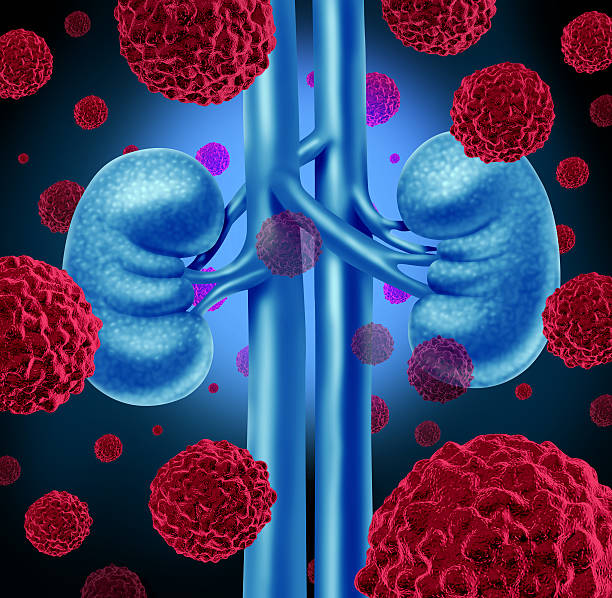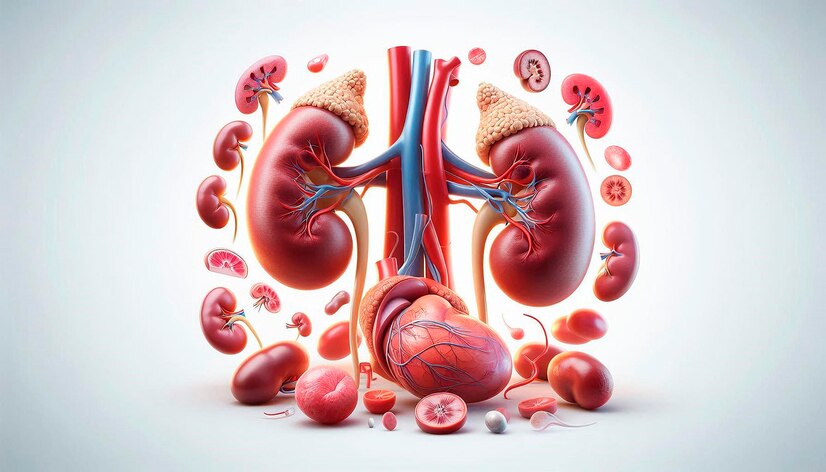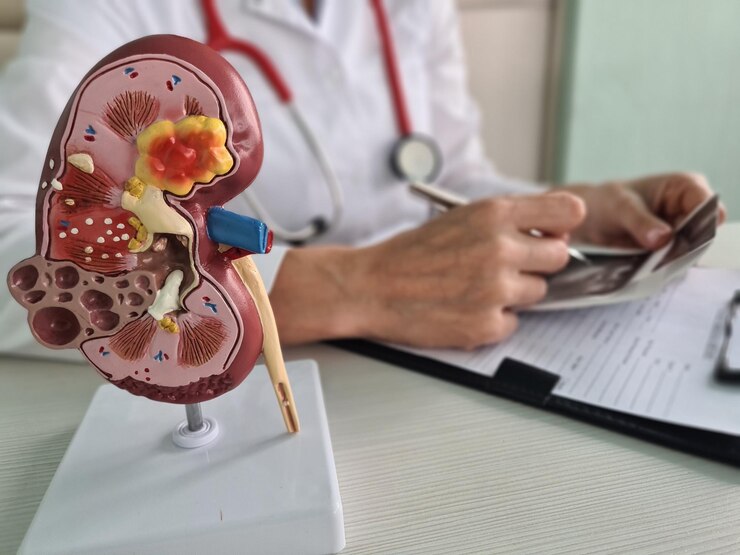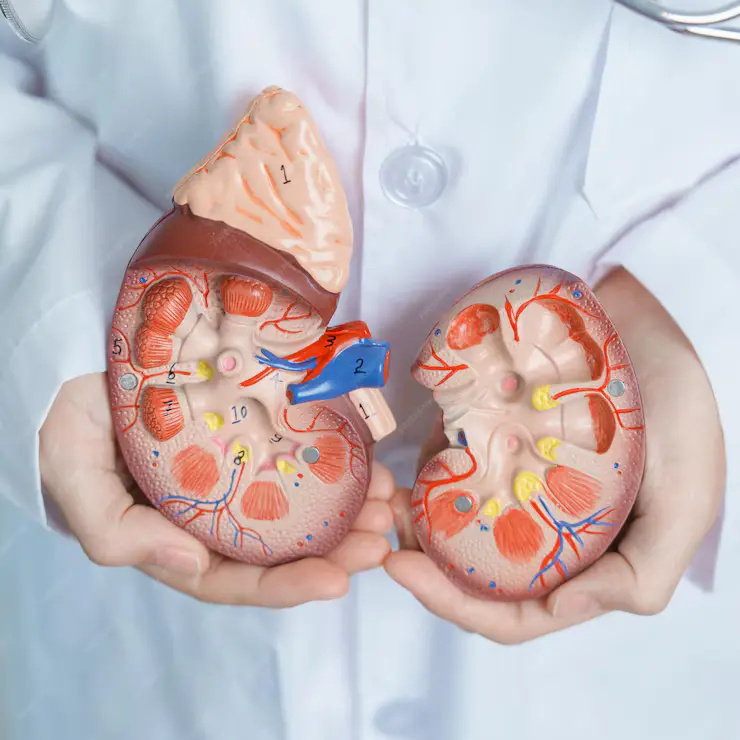Fighting Kidney Cancer
Early Detection, Lifelong Protection
KIDNEY CANCER
Carcinoma of the kidneys, which is also known as kidney cancer or renal cell cancer (RCC), is a type of malignancy that arises from the cells found in the kidneys. Known to be bean-shaped, these organs remove waste materials from the blood and make urine. It ranks among the most frequent tumors affecting the urinary system. It occurs in various types, including predominantly renal cell carcinoma and less frequently transitional cell carcinoma, Wilms’ tumor in children mainly, and renal sarcoma.

Causes &
Risk Factors
Understanding the Roots: Uncovering Causes and Risk Factors of Kidney Cancer
Kidney cancer does not always have a clear cause, but there are several risk factors associated with it. Some of these include smoking, obesity, high blood pressure, family history of kidney cancer, Von Hippel-Lindau disease, and prolonged exposure to harmful substances like asbestos or cadmium. Besides, age and gender are significant factors, with men being more prone to suffer from this condition than women, while older adults are much more affected.
Symptoms

In its initial stages, kidney cancer may show no signs at all, making detection hard. However, as it develops, symptoms become visible that comprise hematuria or blood in the urine; continuous pain on one side of the lower back; unexpected weight loss; tiredness; fever, as well as a palpable mass or lump situated either on the abdomen or side. Sometimes, anaemia results due to interference by tumours with kidney functions, leading to hypertension.
Diagnosis
This starts by taking a careful medical history followed by a physical examination, mainly done by imaging tests such as ultrasound scanning, CT scans, or MRI for imaging the kidney so that any abnormal growths may be identified if present. In case there is suspicion about the existence of a tumor biopsy may be done in order to get a microscopic view after obtaining a tissue sample. Blood tests can then be conducted to reveal any consistencies implying anomalies linked up with kidney function regarding abnormal markers showing an indication of danger because they suggest the presence of possible cancers.
This starts by taking a careful medical history followed by a physical examination, mainly done by imaging tests such as ultrasound scanning, CT scans, or MRI for imaging the kidney so that any abnormal growths may be identified if present. In case there is suspicion about the existence of a tumor biopsy may be done in order to get a microscopic view after obtaining a tissue sample. Blood tests can then be conducted to reveal any consistencies implying anomalies linked up with kidney function regarding abnormal markers showing an indication of danger because they suggest the presence of possible cancers.

Staging and Grading
Following confirmation of kidney cancer, it has to be staged and graded so as to establish the extent of the disease and the tumour’s level of aggressiveness. The stages range from Stage I, which is restricted to the kidney, to Stage IV, where other distant organs get affected. The grade of this tumour, on the other hand, gives an impression of how abnormal those cells are with respect to their appearance under a microscope, hence indicating how fast cancer can spread.
Prognosis
The prognoses for renal cancer widely differ based on their staging at diagnosis as well as the kinds of treatments undertaken by patients. When detected early enough and confined within the renal system only, surgery eliminates the majority of such cancers from bodies. Still, advanced ones that have moved elsewhere are relatively harder to manage and require the use of more than one modality or therapeutic mode before improvement can be obtained out rightly.
Treatment
However, treatment options for this ailment vary according to factors such as the grade and stage of the tumour, together with the patient’s health status. In fact, surgery is by far the most common type of treatment, especially in case there is local tumour involvement. Still, removal of part or total kidney, i.e., partial or radical nephrectomy, is done respectively.
For those cases where surgery cannot be done or when cancer is already at distant sites on the body, alternative remedies may entail targeted therapy, immunotherapy, radiation, as well as chemotherapy in exceptional cases. Targeted therapies operate on specific abnormalities connected with cancer cells, while immunotherapy works towards bolstering the defence system against tumours.

